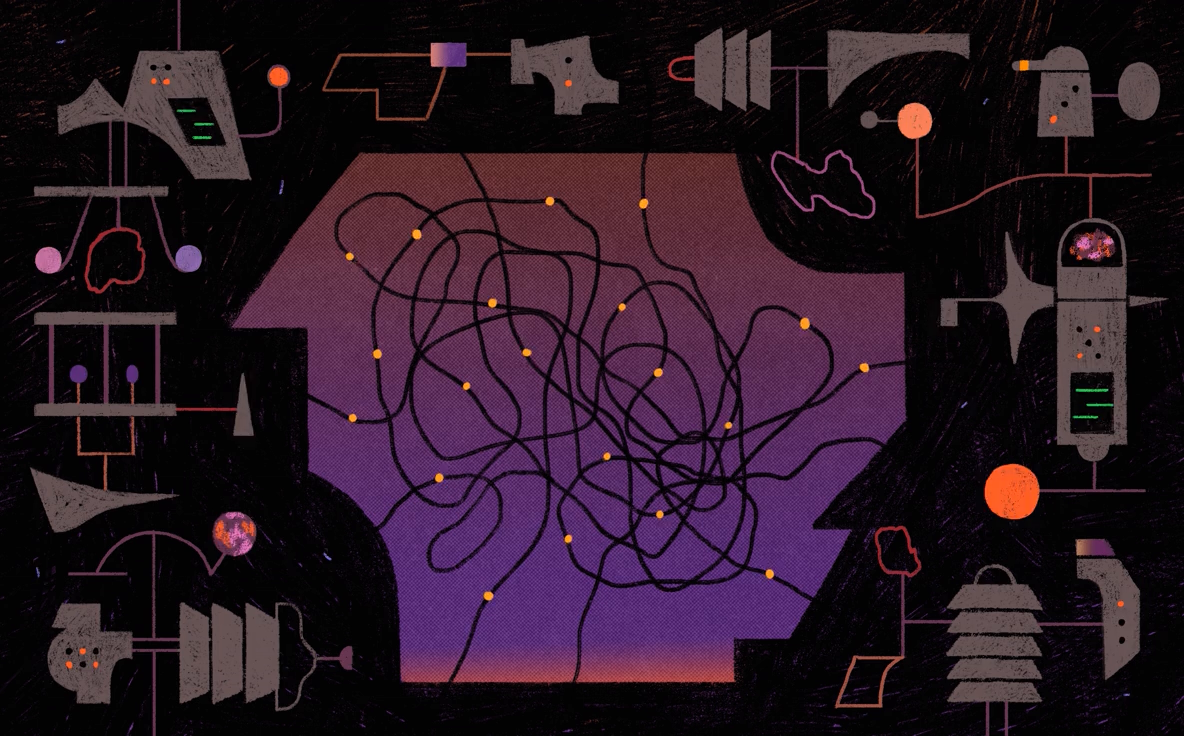A Cryptocurrency Without a Blockchain Has Been Built to Outperform Bitcoin
The controversial currency IOTA rests on a mathematical “tangle” that its creators say will make it much faster and more efficient to run.

Bitcoin isn’t the only cryptocurrency on a hot streak—plenty of alternative currencies have enjoyed rallies alongside the Epic Bitcoin Bull Run of 2017. One of the most intriguing examples is also among the most obscure in the cryptocurrency world. Called IOTA, it has jumped in total value from just over $4 billion to more than $10 billion in a little over two weeks. But that isn’t what makes it interesting. What makes it interesting is that it isn’t based on a blockchain at all; it’s something else entirely.
The rally began in late November, after the IOTA Foundation, the German nonprofit behind the novel cryptocurrency, announced that it was teaming up with several major technology firms to develop a “decentralized data marketplace.”
A what, now?
Though IOTA tokens can be used like any other cryptocurrency, the protocol was designed specifically for use on connected devices, says cofounder David Sønstebø. Organizations collect huge amounts of data from these gadgets, from weather tracking systems to sensors that monitor the performance of industrial machinery (a.k.a. the Internet of things). But nearly all of that information is wasted, sitting in siloed databases and not making money for its owners, says Sønstebø.
IOTA’s system can address this in two ways, he says. First, it can assure the integrity of this data by securing it in a tamper-proof decentralized ledger. Second, it enables fee-less transactions between the owners of the data and anyone who wants to buy it—and there are plenty of companies that want to get their hands on data.
Now, here’s where things get really interesting. Instead of a blockchain, IOTA uses a “tangle,” which is based on a mathematical concept called a directed acyclic graph. Sønstebø says his team pursued an alternative approach after deciding that blockchains are too costly—it has recently cost as much as $20 per Bitcoin transaction because of high demand—and inefficient to operate at the scale required for the Internet of things.
Part of Sønstebø’s issue with Bitcoin and other blockchain systems it that they rely on a distributed network of “miners” to verify transactions. (For more: “What Bitcoin Is, and Why It Matters”)
So IOTA has dispensed with the miners. Instead, when a user issues a transaction, that individual also validates two randomly selected previous transactions, each of which refer to two other previous transactions, and so on. As new transactions mount, a “tangled web of confirmation” grows, says Sønstebø.
Sounds great, but as Sønstebø notes, IOTA is still in “very early-stage beta.” And the high-profile names participating in its data market pilot—including Microsoft, Deutsche Telekom, and Fujitsu—suggest IOTA is onto something. In recent months, though, some prominent members of the cryptocurrency research community have expressed reservations about IOTA’s design and overall security. In August, researchers from MIT and Boston University reported that they discovered a “serious vulnerability” in a novel cryptographic technique IOTA was using.
IOTA has patched the vulnerability, and Sønstebø says that security measures in place would have prevented anyone from losing funds. The foundation has hired a third-party firm to help it continue to develop the technique, which Sønstebø says represents the kind of “lightweight cryptography” needed for low-power connected devices, like sensors.
Congratulations @randomspirit! You have completed some achievement on Steemit and have been rewarded with new badge(s) :
Click on any badge to view your own Board of Honor on SteemitBoard.
For more information about SteemitBoard, click here
If you no longer want to receive notifications, reply to this comment with the word
STOP